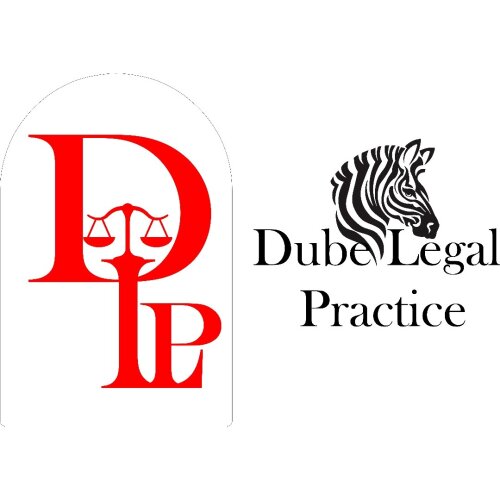Best Native People Lawyers in Zimbabwe
Share your needs with us, get contacted by law firms.
Free. Takes 2 min.
Or refine your search by selecting a city:
List of the best lawyers in Zimbabwe
About Native People Law in Zimbabwe
Native People in Zimbabwe primarily pertain to various ethnic groups originally inhabiting the region before colonization. These groups include the Shona, Ndebele, and other minority ethnic cultures. The laws concerning Native People in Zimbabwe often address matters like land rights, cultural preservation, and traditional leadership systems. The legal framework aims to recognize and protect the rights and interests of Native People while balancing national development goals. Understanding these laws is crucial for maintaining the cultural heritage and ensuring the equitable treatment of Indigenous communities within Zimbabwe.
Why You May Need a Lawyer
There are several common situations where Native People in Zimbabwe may require legal assistance. These include:
- Land Disputes: Legal disputes over ancestral land ownership and land use rights are prevalent.
- Cultural Rights: Issues related to the preservation and protection of cultural heritage and practices.
- Inheritance Issues: Legal help in resolving issues pertaining to the inheritance of land and property.
- Traditional Leadership: Disputes concerning the recognition and authority of traditional leaders.
- Access to Resources: Legal challenges related to the access and use of natural resources.
A lawyer experienced in Native People law can provide guidance, representation, and intervention in these matters, ensuring that the rights and traditions of Native People are upheld.
Local Laws Overview
Various laws and policies in Zimbabwe relate specifically to Native People. Key aspects to consider include:
- Traditional Leaders Act: Governs the recognition, appointment, and duties of traditional leaders.
- Communal Lands Act: Regulates the use and allocation of communal lands, which are often occupied by Native People.
- Indigenous Knowledge Systems Policy: Aims to protect and promote the use of indigenous knowledge and practices.
- Cultural Policy of Zimbabwe: Focuses on the preservation of cultural heritage, recognizing the significance of Native People’s cultures.
- Environmental Management Act: Covers aspects of environmental rights that impact communal lands and natural resources.
These laws are fundamental in maintaining the rights and addressing the unique needs of Native People within the context of Zimbabwe’s legal framework.
Frequently Asked Questions
What are the main ethnic groups among Native People in Zimbabwe?
The primary ethnic groups include the Shona, which is the largest group, and the Ndebele, along with a range of smaller ethnic communities.
How does the government of Zimbabwe recognize Native People’s rights?
The government recognizes Native People’s rights through specific laws and policies focused on land rights, cultural preservation, and the recognition of traditional authorities.
What is the role of traditional leaders among Native People?
Traditional leaders play a crucial role in managing communal lands, resolving local disputes, and preserving cultural practices and traditions.
How can Native People claim land rights in Zimbabwe?
Land rights can be claimed through legal frameworks such as the Communal Lands Act, which lays out the processes for land allocation and use by communal residents.
What resources are available to Native People for legal aid?
There are legal aid organizations, governmental bodies, and NGOs focusing on providing legal assistance and upholding the rights of Native People.
Are there specific legal challenges Native People face regarding resource access?
Yes, challenges often involve equitable access to natural resources and negotiating benefits from commercial exploitation of these resources.
How is indigenous knowledge protected under Zimbabwean law?
The Indigenous Knowledge Systems Policy offers legislative backing to safeguard and promote indigenous knowledge and cultural expressions.
What legal protections exist for cultural heritage in Zimbabwe?
The Cultural Policy of Zimbabwe outlines measures to safeguard cultural sites, practices, and artifacts linked to Native People.
Can Native People hold government positions in Zimbabwe?
Yes, Native People can participate in government, holding various political and administrative positions, reflecting their representation in national affairs.
How do international laws impact Native People in Zimbabwe?
International conventions like the United Nations Declaration on the Rights of Indigenous Peoples influence domestic laws and policies by encouraging the protection and promotion of indigenous rights globally.
Additional Resources
- Ministry of Lands, Agriculture, Fisheries, Water, and Rural Development: Offers resources related to land use and communal farming areas.
- Zimbabwe Human Rights Commission: Provides oversight and advocacy for human rights, including those of Native People.
- Traditional Leaders Council: Provides governance and administration related assistance to traditional leaders and communities.
- Centre for Applied Legal Research: A non-profit organization offering legal aid and research related to Native People issues.
Next Steps
If you are in need of legal assistance related to Native People in Zimbabwe, consider the following steps:
- Identify the specific legal issue you are facing and gather relevant documentation.
- Contact a lawyer or legal firm in Zimbabwe specializing in Native People law or land and cultural rights.
- Reach out to organizations or government bodies that provide resources and advocacy support.
- Attend local community meetings or forums where issues pertinent to Native People are discussed.
- Keep informed of any changes in local and national laws that may affect your rights or obligations.
Taking these steps can help you better understand your situation and gain the needed legal support to resolve any disputes or to protect your rights and interests effectively.
Lawzana helps you find the best lawyers and law firms in Zimbabwe through a curated and pre-screened list of qualified legal professionals. Our platform offers rankings and detailed profiles of attorneys and law firms, allowing you to compare based on practice areas, including Native People, experience, and client feedback.
Each profile includes a description of the firm's areas of practice, client reviews, team members and partners, year of establishment, spoken languages, office locations, contact information, social media presence, and any published articles or resources. Most firms on our platform speak English and are experienced in both local and international legal matters.
Get a quote from top-rated law firms in Zimbabwe — quickly, securely, and without unnecessary hassle.
Disclaimer:
The information provided on this page is for general informational purposes only and does not constitute legal advice. While we strive to ensure the accuracy and relevance of the content, legal information may change over time, and interpretations of the law can vary. You should always consult with a qualified legal professional for advice specific to your situation.
We disclaim all liability for actions taken or not taken based on the content of this page. If you believe any information is incorrect or outdated, please contact us, and we will review and update it where appropriate.
Browse native people law firms by city in Zimbabwe
Refine your search by selecting a city.















